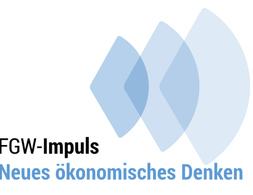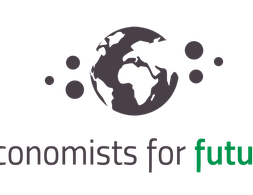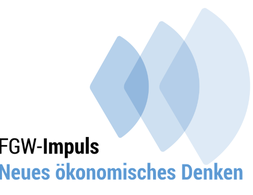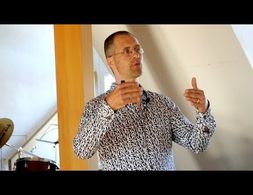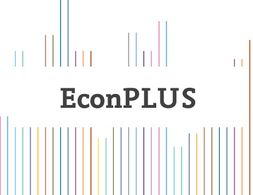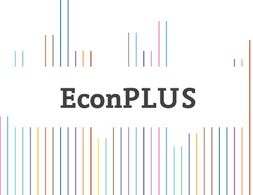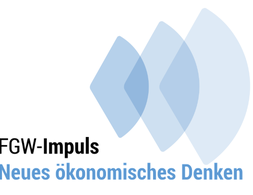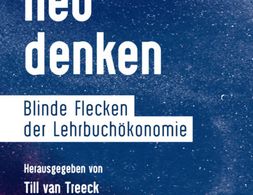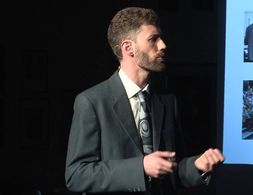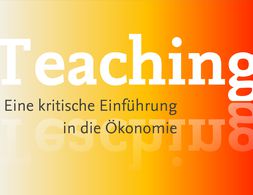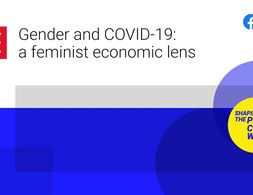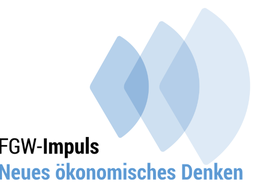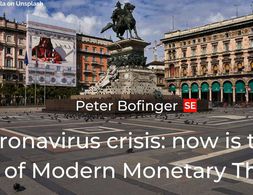1165 Ergebnisse
In this book, the author critically examines a number of socialist proposals that have been put forward since the end of the Cold War. It is shown that although these proposals have many merits, their inability effectively to incorporate the benefits of information technology into their models has limited their ability to solve the problem of socialist construction. The final section of the book proposes an entirely new model of socialist development, based on a "needs profile" that makes it possible to convert the needs of large numbers of people into data that can be used as a guide for resource allocation. This analysis makes it possible to rethink and carefully specify the conditions necessary for the abolition of capital and consequently the requirements for socialist revolution and, ultimately, communist society.
"Leveraged" provides an authoritative guide to the new economics of our crisis-filled century with a focus on financial crises and financial economics.
Ökonomische Ungleichheiten und große Unterschiede in den Lebensbedingungen sind für die Europäische Union (EU) eine wachsende politische Herausforderung. Die Unterschiede in den Einkommen führen zu verstärkter Arbeitsmigration sowie zu Lohn- und Sozialdumping – und sie treiben den Standortwettbewerb zwischen den Mitgliedstaaten an. Hierbei geht es oft um ökonomische Indikatoren, das heißt um Messgrößen, die über die jeweilige wirtschaftliche Situation oder Struktur der Länder Auskunft geben; Fragen der Lebensqualität und des gesellschaftlichen Wohlergehens erhalten unter diesem Blickwinkel innerhalb der EU hingegen kaum Aufmerksamkeit.
Eine kritische Transformative Wissenschaft dagegen müsste eine Vielfalt unterschiedlicher Transformationsverständnisse und -ziele zulassen. Transformative Wissenschaft wäre dann eine Plattform, auf der kritische Stränge der Natur- und Ingenieurs- sowie der Sozial- und Geisteswissenschaften sich begegnen und unterschiedliche Veränderungsvorstellungen diskutieren können. Dazu zählt auch ein kapitalismus- und herrschaftskritisches Transformationsverständnis.
Die Studie untersucht, wie Studierende der Volkswirtschaftslehre (VWL) an deutschen Hochschulen ihr Fach und die Pluralismusdebatte wahrnehmen. Schriftlich befragt wurden 351 Studierende der VWL im vierten Semester an den Universitäten Bonn, Frankfurt/M., Hamburg, Heidelberg und Mannheim.
Leigh Phillips and Michal Rozworski examine the apparent contradiction between the demise of real-existing socialism and the rise of large corporations engaging in planning every day, making a strong argument that these planning efforts should be transformed to now fulfil the needs of the people.
Andreas Siemoneit zu den Möglichkeiten und Grenzen einer sozialen Utopie. „Man kann Marktwirtschaft und Kapitalismus deutlich voneinander abgrenzen und Marktwirtschaft als eine noch nicht realisierte soziale Utopie betrachten…“
In den vergangen Jahren gab es in der Öffentlichkeit aber auch innerhalb der wissenschaftlichen Gemeinde zunehmend Kritik an der Einseitigkeit der derzeitig gelehrten Volkswirtschaftslehre. Vor diesem Hintergrund initiierte das Netzwerk Plurale Ökonomik ein Kooperationsprojekt mit der Universität Kassel, um diese Kritik empirisch zu überprüfen. Das Projekt wurde von der Hans-Böckler-Stiftung gefördert. Die Ergebnisse dieses zweijährigen Forschungsprojektes liegen nun vor.
Für einen großen Teil der Befragten sind die vorherrschenden Lehrbücher weitgehend hinreichend in Bezug auf die Wiedergabe des Stands der Forschung, der Vermittlung von in der Wirtschaft zu beobachtenden Problemen und in Bezug auf die Vermittlung von pluralen Ansätzen. Dies deutet darauf hin, dass sich die grundsätzliche Kritik an den Lehrinhalten bis dato kaum zu einer Kritik an den einschlägigen Lehrbüchern weiterentwickelt hat (vgl. Urban/Van Treek 2016).
Die Studie basiert auf einer Online-Umfrage unter 448 Promovierenden im Fach Volkswirtschaftslehre (VWL) an Universitäten und Graduiertenschulen im deutschsprachigen Raum.
„Wirtschaft neu denken“ umfasst 20 Rezensionen aktuell einflussreicher Lehrbücher und zeigt: Viele Standardwerke blenden wissenschaftliche und gesellschaftliche Kontroversen systematisch aus und stellen wirtschaftliche Zusammenhänge, die seit jeher in hohem Maße komplex und umstritten sind, als scheinbar objektive Gesetzmäßigkeiten dar.
In this TedTalk Dan O Neil explains why GDP and infinite growth are concepts that we should leave behind and which other perspectives have been developed Degrowth post growth well being or steady state economy The goal is to rethink a new paradigm that puts society and the environment at …
Firms are the primary places where economic activity takes place in modern capitalist economies: they are where most stuff is produced; where many of us spend 40 hours a week; and where big decisions are made about how to allocate resources. Establishing how they work is hugely important because it helps us to understand patterns of production and consumption, including how firms will react to changes in economic conditions and policy. And a well-established literature – led by post-Keynesians and institutionalists – holds that the best way to determine how firms work is to…wait for it...ask firms how they work. This a clearly sensible proposition that is contested in economics for some reason, but we’ll ignore the controversy here and just explore the theory that springs from this approach.
How countries achieve long-term GDP growth is up there with the most important topics in economics. As Nobel Laureate Robert Lucas put it “the consequences for human welfare involved in questions like these are simply staggering: once one starts to think about them, it is hard to think about anything else.” Ricardo Hausmann et al take a refreshing approach to this question in their Atlas of Economic Complexity. They argue a country’s growth depends on the complexity of its economy: it must have a diverse economy which produces a wide variety of products, including ones that cannot be produced much elsewhere. The Atlas goes into detail on exactly what complexity means, how it fits the data, and what this implies for development. Below I will offer a summary of their arguments, including some cool data visualisations.
This content submission has two parts: (1) a link to the post by Wolf Richter on deterioration of US subprime credit card debt and loans, driven in part by the overuse of hedonic quality adjustments in the Consumer Price Index (CPI) used by the US Bureau of Labor Statistics, and (2) to introduce Exploring Economics to the website Naked Capitalism, which is an effort to promote critical thinking through the medium of a finance and economics blog and fearless commentary.
Planet Money and The Indicator aim to explain current economic events in an easy, fun and accessible manner.
Um das Thema ganzheitlich zu betrachten, werden in diesem Dossier zuerst allegemeine Aspekte der Nachhaltigkeit thematisiert, danach ein Bogen zum Kakaoanbau gespannt und zu guter Letzt thematisch passendes Material für die Schule vorgestellt.
Ziel dieser kritischen Einführung in die Volkswirtschaft ist es, auf knappem Raum unterschiedliche Sichtweisen auf wirtschaftliche Zusammenhänge darzulegen und damit die Basis für ein differenziertes Verständnis von Ökonomie und wirtschaftspolitischen Debatten zu liefern. In Zeiten einer integrierten Weltwirtschaft, rascher Veränderungen und internationaler Krisen liegt es nahe, Wirtschaft in ihrer internationalen Dimension in den Mittelpunkt zu stellen, anstatt wie gehabt meist nationale Ökonomien isoliert zu betrachten. Miteinander asymmetrisch verbundene Entwicklungen und Veränderungen in Nord und Süd, die auf globaler sowie zwischen nationaler und regionaler Ebene stattfinden, stellen somit einen zentralen Bezugspunkt dar. Daher der Titel des Buches: Ökonomie und internationale Entwicklung.
Wirtschaftswachstum in den Ländern des Globalen Nordens zu kritisieren ist eine Sache, aber was bedeutet Wachstumskritik für die Länder des Globalen Südens? Inwiefern ist die Frage nach Wachstum und Postwachstum für den Globalen Süden und die Entwicklungszusammenarbeit relevant? Mit drei Redner*innen aus dem Globalen Süden wurden diese Fragen im Seminar „Entwicklungszusammenarbeit in einer Postwachstums-Ära“ diskutiert.
This lecture takes a look at the consequences of COVID 19 from a feminist economics perspective Professor Kabeer analyses a range of different impacts associated with COVID 19 and explores the kinds of policies that such a feminist economics lens would suggest for a more resilient and equitable future Naila …
Auf dieser Seite ist eine Übersicht der FGW-Impulse für Neues Ökonomisches Denken zu finden.
A stock-flow-fund ecological macroeconomic model
Peter Bofinger argues that the Modern Monetary Theory gives theoretical justification for bold answers to the corona crisis.
Das Dossier stellt einen guten, leicht verständlichen Einstieg in das Thema Sharing Economy dar. Hervorzuheben ist die abwägende Betrachtung des Themas sowie die Veranschaulichung an dem konkreten Fallbeispiel Foodsharing. Abschließend wird vorgeschlagen, wie das Thema im Schulkontext aufgegriffen werden könnte.
Diese Vorlesung beschäftigt sich mit grundlegenden Elementen sozialphilosophischen Denkens mit besonderem Fokus auf Schnittmenge zwischen Sozialphilosophie und politischer Ökonomie. Im Zentrum steht die Vermittlung von Kenntnissen über die zentralen Fragestellungen, die historische Genese, sowie wesentliche, prägende Beiträge der Sozialphilosophie und Politischen Ökonomie.
This course introduces students to the relevance of gender relations in economics as a discipline and in economic processes and outcomes. The course covers three main components of gender in economics and the economy: (1) the gendered nature of the construction and reproduction of economic theory and thought; (2) the relevance and role of gender in economic decision-making; and (3) differences in economic outcomes based on gender. We wil touch on the relevance of gender and gender relations in at least each of the following topics: economic theory; the history of economic thought; human capital accumulation; labor market discrimination; macroeconomic policy, including gender budgeting; household economics; basic econometrics; and economic crises.
Exploring Economics Dossier on the economic fallout of the COVID-19 pandemic and the structural crisis of globalization. COVID-19 encounters a structural crisis of globalization and the economic system that drives it, with an uncertain outcome. We asked economists worldwide to share with us their analysis of current events, long-term perspectives and political responses. The dossier will be continuously expanded.
The module is designed to first present some of the main schools of thought from a historical and methodological perspective. Each week we explore and critically assess the main tenants of each school of thought. In the second part of the module we link history of economic thought and methodology to a specific and contemporary economic question. The second part allows you to engage with current economic issues with an awareness of methodology and methodological differences and with some knowledge of the history of economics.
In der Lehrveranstaltung „Plurale Feministischen Ökonomie“ erhalten die Studierenden einen Einblick in die unterschiedlichen Debatten innerhalb der Feministischen Ökonomie, die von der Subsistenztheorie bis hin zur Queer Economics reichen, und lernen die wissenschaftstheoretischen, normativen und methodischen Hintergründe kennen.
This module examines current socio-political issues through the lens of pluralism, that is pluralism of theory, pluralism of method and interdisciplinary pluralism
Ziel dieses Seminars ist, eine Einführung in die wissenschaftstheoretischen und methodischen Grundlagen der Sozial- und Wirtschaftswissenschaften zu bieten.
Understanding international trade is central to economics and is currently a hot political issue. It’s an area where popular perceptions of mainstream economics are low, since they have historically missed some important downsides of trade agreements, especially the hollowing out of former manufacturing hubs in the Western world. et economists have for long time had a theory of trade with an impressive amount of scientific clout behind it: the gravity trade model.
Wir nutzen Cookies. Klicke auf "Akzeptieren" um uns dabei zu helfen, Exploring Economics immer besser zu machen!



